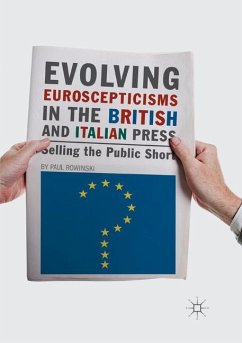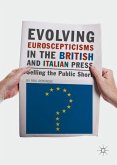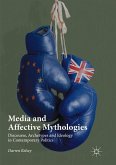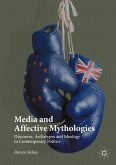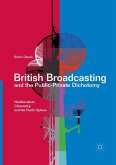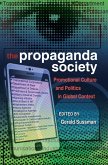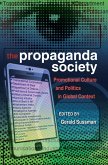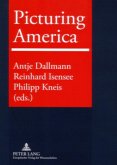This book argues the discursive construction of the EU in national newspapers is pivotal in creating an environment of Euroscepticism. It will challenge the persuasive, manipulative and prejudicial language, sometimes peddled in the influential UK Murdoch and Italian Berlusconi press. The foci are the key Eurosceptic triggers of the euro; the subsequent national economic crises; and immigration, investigated through major events covered over two decades, including the UK's recent Brexit vote.
The book will explore the national responses to the post-war project; how the EU is understood through the prism of nationhood; and how that has now manifested itself in Euroscepticism in both countries, lastly articulated through interviews with British and Italian politicians and journalists involved.
It will include Euroscepticism's latest chapter. The increasingly key protagonists of the UK Independence Party and Italy's Five Star Movement, want to take Britain out of the EU and Italy out of the euro - covered in the Murdoch and Berlusconi press.
This book offers a rigorous academic analysis presented in an accessible style to experts and laypersons alike, exploring concrete articulations of Euroscepticism in the press - Selling the Public Short.
The book will explore the national responses to the post-war project; how the EU is understood through the prism of nationhood; and how that has now manifested itself in Euroscepticism in both countries, lastly articulated through interviews with British and Italian politicians and journalists involved.
It will include Euroscepticism's latest chapter. The increasingly key protagonists of the UK Independence Party and Italy's Five Star Movement, want to take Britain out of the EU and Italy out of the euro - covered in the Murdoch and Berlusconi press.
This book offers a rigorous academic analysis presented in an accessible style to experts and laypersons alike, exploring concrete articulations of Euroscepticism in the press - Selling the Public Short.
"There is something refreshingly overt in the crusading, polemical passion of this book. ... Rowinski in particular sets out to deconstruct the illusion of any 'impartial [...] fact-centred' press cover-age of Europe. ... In doing so, he crucially challenges a liberal model of press influence and responsibility as a disinterested watchdog mediating between power and the populace." (Alec Charles, Journalism Education - The Journal of the Association for Journalism Education, Vol. 6 (3), 2017-2018)

